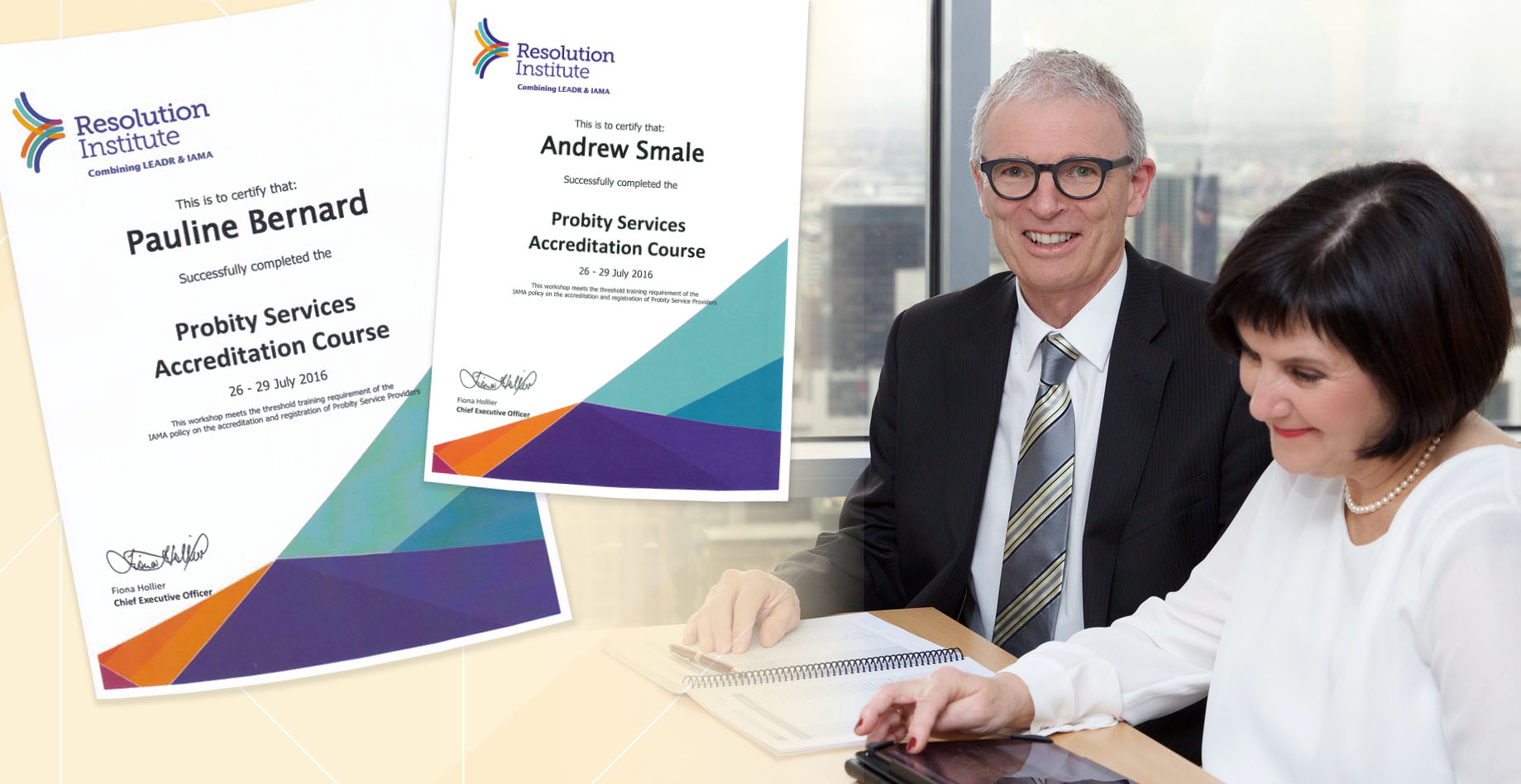What does it take to be a probity practitioner in Victoria?
Understanding of public sector processes including commercial dealings; practical understanding of transparency and accountability; a strong sense of integrity in public sector organisations; knowledge of anti-corruption strategies; and experience working in government. To provide probity auditing or advisory services to state government, it’s also essential to be appointed to the Victorian government State Purchase Contract for Professional Advisory Services in the relevant probity category (PR-1 Probity Advice or Pr-2 Probity Audit). CourtHeath is a member of that panel providing both audit and advisory services, and our probity practitioners have qualifications in law, economics, accounting, business and science as well as training through courses like Values of Government and Procurement and CIPS Ethical Sourcing.
Two CourtHeath senior probity practitioners have attained a specialist probity services accreditation. Andrew Smale and Pauline Bernard recently completed the four-day course including a half-day exam. Presented by the Resolution Institute, this is the only probity accreditation course we’ve found.
“In a workshop setting, we explored good probity practices and the legal and policy context including case law that has shaped the way probity practitioners operate,” said CourtHeath Managing Director Pauline Bernard. “Suitable for all probity experience levels from beginners to experienced practitioners, this course brings together many aspects of probity, through practical case studies.”
The course had a number of key themes that reinforced the need for the market engagement processes to be well-articulated, applied consistently and documented. Concepts such as accountability and transparency were emphasised. “I was particularly struck with the importance of the process contract and the need for the government buyer to act in good faith, fairly, and consistently with the procurement documents,” said Andrew Smale, Principal Consultant with CourtHeath. “Indeed, every tenderer has process contract rights in a public sector procurement and not just the successful one.”
If you’ve sensed some uncertainty about standards and qualifications applicable to probity practitioners, you’re not alone! The foreword to the Probity Services Practitioner Handbook notes:
“In 2008, the Australian Standard AS 8000 – Governance handbook on probity assurance commented on the lack of standards or qualifications for probity auditors or advisers, or a representative industry body. Users of these services, particularly Government, had expressed concern for the lack of consistency within and across the jurisdictions in the provision of services from probity auditors and advisers. As stated in the AS8000 handbook, there are no industry standards for practice or skills of practitioners, albeit that the referenced handbook provides fundamental principles.”
Course presenter Jim Box is the author of the Probity Services Practitioner Handbook referenced in the course – and co-author of one of the few legal texts on probity: Probity and Managing Procurement: How to Avoid Corrupting the Process – James E. Box and Michael W. Forde DCJ (Lexus Nexus Butterworths 2007).
“The Australia-wide course began in 2009 following demand from both Government and Corporations, concerned that there was inconsistency in knowledge and standards of service from Probity Advisors and Probity Auditors,” Jim Box told CourtHeath. “Government purchasers of probity services observed that many probity service providers were focussed on the issues of ethical behaviour, conflicts of interest, and confidentiality; and while these were all important, what was not addressed were the issues of accountability and transparency.
“It also appeared that probity risk management was not well appreciated,” Box continued, “with many probity service providers taking a high moral ground approach to risk. In contemporary probity practice, it was as much about the integrity of procurement and contracting processes as the ethics. Users saw probity in a conceptual context because there were few absolutes; so users were looking for options and risks rather than negative advice on dilemmas of probity and integrity.”
A participant in the UN Global Compact, CourtHeath seeks to raise awareness about the sustainable development goals and the principles of the Global Compact with business and government organisations in Victoria. Anti-corruption is one of the ten principles of the Global Compact. Corruption impedes business growth, escalates costs including transaction costs for government and suppliers, poses serious legal and reputational risks and undermines fair competition. Through our probity work in government, we learn about and promote anti-corruption practices.
 CourtHeath Consulting
CourtHeath Consulting CourtHeath Consulting
CourtHeath Consulting